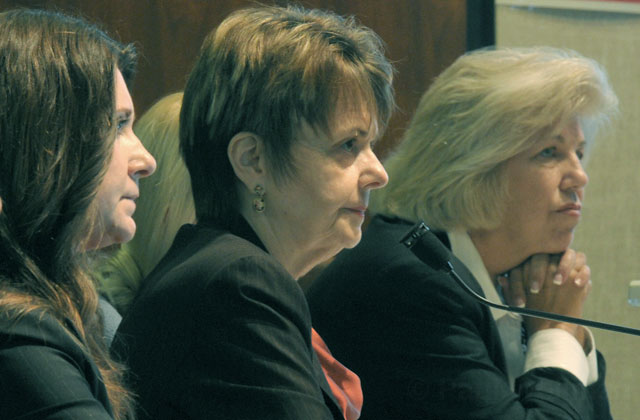Scorched on the Hot Seat
Supervisors Express Extreme Frustration with Alcohol, Drug and Mental Health Services Department

It’s safe to say that Dr. Ann Detrick, director of the county’s Alcohol, Drug and Mental Health Services department, is officially on the hot seat.
When she came to Santa Barbara in January 2008 from Boston, she immediately stepped into one of the stickiest situations facing our local government. For years before she arrived, ADMHS struggled under poor management at the top. Then, and now, the department endured and continues to endure a complicated, confusing, always-changing, and inherently difficult state system of billing and auditing that often takes place many years after the fact.
About a year after Detrick arrived, department officials realized that ADMHS had been inappropriately billing the state, and at one point in March 2009 they reported a $19 million negative cash balance. Since then, more liabilities have been uncovered. Year after year, the board has backfilled the department’s budget deficits, and each year it seems, ADMHS comes back with more problems, more liabilities, but few answers. The department has made progress, but still seems to lack the “oomph” to get onto stable ground.
And the patience of a few of the supervisors seems to be running low at a time when the board has not only been evaluating Detrick’s performance behind closed doors but has also been hearing about more potential liabilities with the state.
While the performance evaluation and other discussions are private, the supervisors expressed frustration during Tuesday’s board meeting, dressing down Detrick and the leaders of the department to an extent rarely seen at a public meeting. What was supposed to be an update on the progress made in the department turned into a question-and-answer session — with more questions than answers. Also conspicuously absent: any mention of actual services to actual people.
Third District Supervisor Doreen Farr questioned the proposed increase in staffing levels — particularly in administration — while the budget for the department is scheduled to drop in the upcoming fiscal year. “It’s hard for me when I look at the other departments doing more with less staff and less money,” said Farr, who months ago told Detrick and company to figure out how to balance their budget without cutting any more services. First District Supervisor Salud Carbajal also had a hard time following Detrick Tuesday. “I’m at my wits’ end,” Carbajal said. “I’m just at the end of my rope.”
It got so bad that the supervisors didn’t even have enough votes to receive and file the report — usually a minor procedural vote that always receives support, no matter the issue or the content. “I don’t even want to receive and file it, it was so bad,” 4th District Supervisor Joni Gray said of Detrick’s presentation.
Is it all one person’s fault? Certainly not. But the numbers are pretty tough to swallow. Currently, the known and estimated funding needs total $19.4 million. There’s a projected loss of $5 million from the current fiscal year, and cost report audits and settlements from 2005 to 2009 total $7.8 million. Said Gray: “It appears to me … that we continue to have huge liabilities in Mental Health because of creative accounting on the mental health staff’s part.”
Department officlals have established $7.5 million in funding sources, leaving $11.9 million in funding needs. They also have a plan for making that number up. The county appealed a decision from the state and recovered 43 percent of the money it had to pay to make up liabilities from 2002 to 2006 — a total of $4.8 million. There was also $2.7 million set aside in the county’s strategic reserve to deal with other liabilities that was never used. Then there is $4.6 million in funds that had been allocated for self-disclosed liabilities, and the funding was less than originally planned for.
Confusing, yes, but Detrick has had more than four years to get to the bottom of this and other problems, and many members of her executive staff have had longer. And it remains to be seen how much more the Board of Supervisors is willing to endure.



